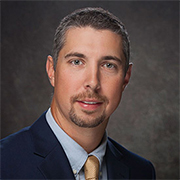Recent anecdotal trends show a new, positive shift among millennials or Gen-Z individuals. According to a recent article from Forbes, “Why Gen-Z Is Suddenly Creating Wills And Trusts—And You Should Too,” within recent months, more and more millennials and Gen-Zers who are being told to create an estate plan are actually going ahead and doing so.
The article says Gen-Zers and millennials have become the “quiet leaders” of estate planning. Several things are driving this shift:
Digital Assets. Younger people, even those of modest means, have significant digital assets, including cryptocurrencies, online businesses and many social media accounts.
COVID. Living through a global pandemic and experiencing the unexpected loss of family members raised awareness relatively early in their adult years of the repercussions of not having an estate plan.
Changing Family Structures. “Modern Family” is more than entertainment. Today’s family is more likely to be different than the traditional family structure of the past, and clear directives are needed to prepare for asset distribution.
Valuing Philanthropy. Younger adults are more aware of the role nonprofits play, whether in their immediate communities or globally. They are also more likely to give a portion of their estate to nonprofit organizations.
Financial Savvy. Younger adults are more candid than past generations with their peers about money and how to protect it through estate planning as part of money management and investment strategies.
Having an estate plan can protect a legacy for family and children, while not having one could mean trouble for carrying out your wishes. An estate planning attorney can help to avoid or minimize probate, a court process requiring your will to become a public document. Probate can delay the distribution of property and can be costly.
Another reason to have a will is to minimize family conflict. Your family won’t be left guessing how you want your assets to be distributed. It is also less likely that there will be family fights or misunderstandings after you’ve passed.
Estate plans are not just for wealthy people but anyone who cares enough about their family to protect them. Younger adults embracing estate planning is a good sign for the future. Contact John M. Lane Law, PLLC to ensure your estate plan is right for you!
Reference: Forbes (April 17, 2024) “Why Gen-Z Is Suddenly Creating Wills And Trusts—And You Should Too”



